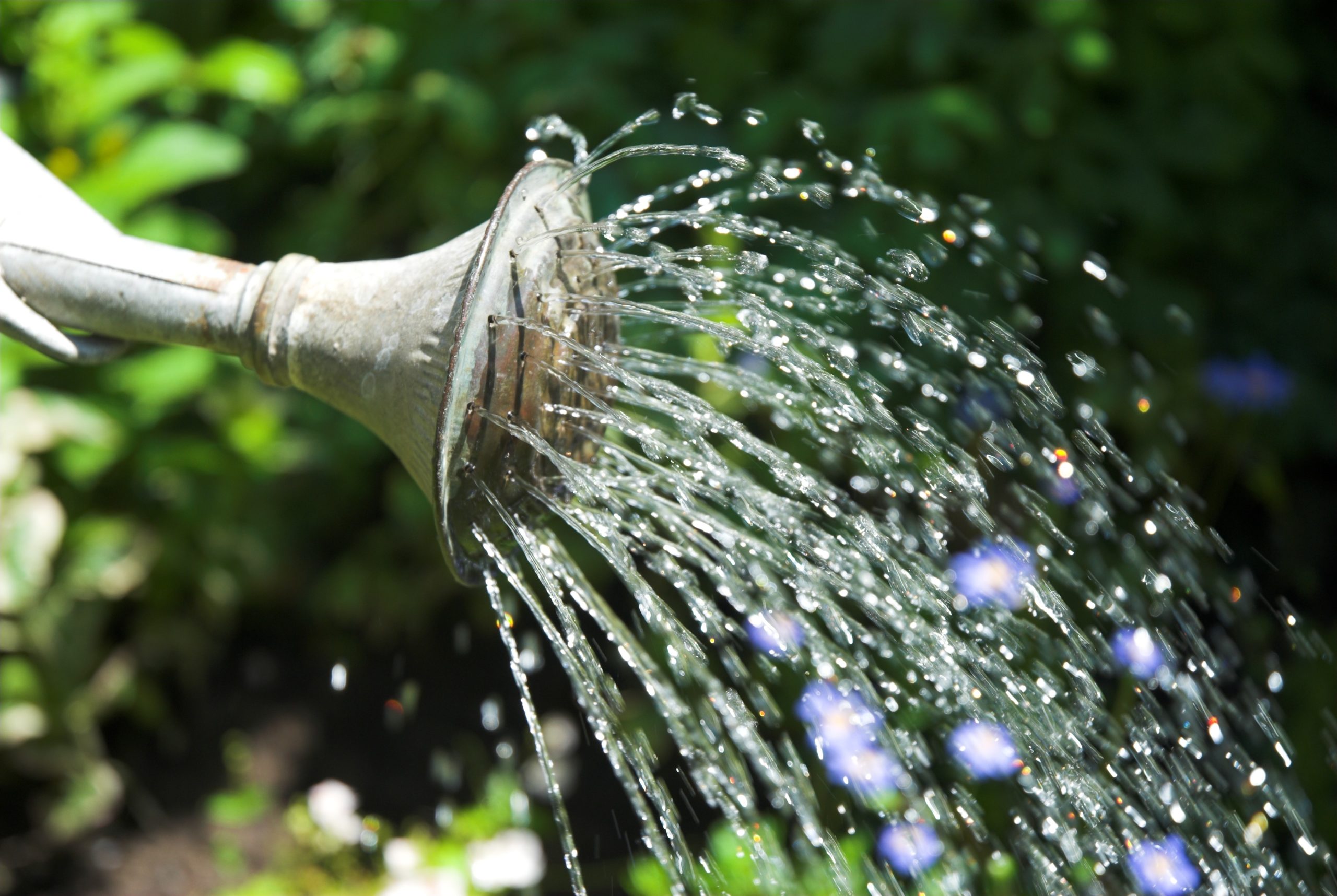
Tip #1: When to Water Plants in Summer?
First things first, make sure to water your plants early in the morning or early evening.
This will help you avoid the heat of the day as the water evaporates quickly when it’s so hot. Plants that are wet overnight can lead to disease problems, especially in your vegetable garden.
Whatever you do, don’t wait until plants are wilted before watering. Be preemptive with watering. Keep in mind that during the heat of the day, even well-watered plants can wilt as they can’t take moisture up fast enough.
Tip #2: How to Mow To Save Water?
Raise your lawn mower so the grass is at least 4” long AFTER mowing. Longer grass shades the ground keeping it cooler which means less watering.
Tip #3: Can I Fertilize Wilted Plants?
Don’t fertilize wilted plants. Come back to them after they are fully hydrated and fertilize to avoid putting undue stress onto the plant and causing more damage.
Tip #4: How to Water my Veggie Garden?
Use soaker or drip hoses in your veggie garden! Veggie plants get their moisture through their roots rather than their leaves, so this technique will help deliver the water where it’s needed most!
Tip #5: What to do if Water Runs Through Your Plants?
If you water your container gardens and water immediately runs through it, don’t panic- it generally means the soil has separated from the sides of the container causing poor water retention. Come back in 15 minutes and water again.
Tip #6: How to Water for Strong Root Systems?
Lawns, perennial gardens, shrubs and veggies need about 1” of water per week, which should be delivered all at once to anything growing in the ground as it helps create deep, strong roots. That being said, when it’s hot AND windy you may have to do the 1” say every 5 days. Raised and elevated beds should be treated more like a container garden with more frequent summer watering sessions.
Tip #7: How to Use Mulch for Water Retention?
Adding a 3” layer of wood mulch around your trees, shrubs, perennials and in-ground annual beds will help keep the soil cooler and retain soil moisture so you have to water less frequently. Mulching also helps reduce weeds.
Tip #8: How to Use Straw for Water Retention?
Adding a thin layer of straw around your vegetable plants like tomatoes and peppers will also help keep the soil cooler and retain moisture. It’s very important that your veggies have consistent moisture.
Tip #9: Watering for Birds
Keep your birdbaths filled as our feathered friends are looking for water too. The same holds true for hummingbird feeders as they are looking for food and water.
Tip #10: General Summer Watering Advice
Invest in water timers for sprinklers and soaker hoses. They make your life a bit easier.
Last but not least, yes, you can still plant trees, shrubs, perennials, veggie plants and seeds in this heat. If you do so, you just have to stay on top of your watering schedule and implement the tips above to see success and avoid stressing out your plants and potentially losing them!
Make your day a good one!
#GetGrowing. #GetGrowingMN
